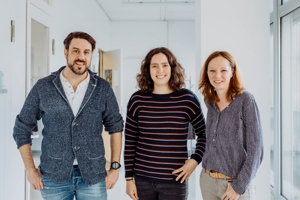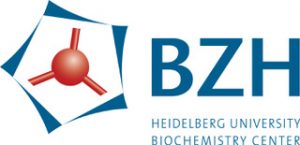Protein-Lipid Interactions and the Influence of Cellular Lipid Environments on Glycosylation Processes
A common intermediate in glycosylation routes is the formation of a polyisoprenoid-linked mono- or oligosaccharide. While the enzymes involved in glycosylation are characterized in some detail, much less is known about the role of the lipids in modulating glycosylation enzyme activities and specificities. Recent data demonstrate that the immediate lipid environment of membrane proteins can influence their function, demanding a closer inspection of the lipid shell of glycosylation enzymes. In return, protein glycosylation was shown to affect structures of membrane proteins and their sorting to specific membrane domains. It is likely that glycosylation defects as manifested in CDGs also alter the lipid composition of membrane domains, e.g. by perturbing the localization of enzymes involved in lipid synthesis.
Here we aim at investigation roles of lipids in modulating activities of glycosylation enzymes. In addition, we will study if and how CDG affects intracellular lipid homeostasis. In order to investigate the influence of lipids on the activity of enzymes involved in N-glycosylation as well as O- and C-mannosylation we plan to reconstitute these enzymes into artificial membrane systems. Using chemically defined lipid environments we plan to measure the influence of the membrane micro- and nano-environment on enzyme activities. In parallel we will perform lipidomics analyses of membranes derived from model systems studied in the consortium to identify potential consequences of glycosylation defects for cellular lipid homeostasis.
The combination of in vitro and cellular experiments as well as lipidomics studies will elucidate roles of lipids in glycosylation processes, such as direct interaction of specific lipids with enzymes, preferred lipid environments of both the polyisoprenoid and the enzymes to modulate and or assist structure and function of glycosylation enzymes and enzyme complexes. In addition, we will investigate if glycosylation defects locally or globally affect cellular lipid profiles.
Team

Britta Brügger (PI), has earned her PhD in Frankfurt and is interested in understanding role of lipids in regulating protein functions.
Rainer Beck has earned his PhD in Heidelberg and is specialized in biochemical reconstitution systems and supports the project in all aspects dealing with the analysis of enzyme activities.
Frauke Kikul received her training in Chemistry at Vienna university. In her PhD thesis she is investigating the interplay of lipid and cellular glycosylation reactions in CDG model systems.
Timo Sachsenheimer is a specialist in mass spectrometric analysis of lipids and supports the project with MS analysis and in establishing workflow for the analysis of glycosylation intermediates.
Alexia Herrmann (MTA) and Iris Leibrecht (CTA) are providing technical support for the project.
For more information on Britta Brügger’s lab visit her website.
Collaborations
We are collaborating with the P1 Bakker, P6 Schwalbe, P7 Sinning and P8 Strahl on the molecular characterization of glycosylation machineries, and with P3 Büttner, P9 Thiel and P10 Wittbrodt on analyses addressing the effects of defective glycosylation in CDG models. Reconstitution experiments are performed in close collaboration with P7 Sinning and P8 Strahl. Mass spectrometric analysis of CDG models are performed using material provided by P3 Büttner, P8 Strahl, P9 Thiel and P10 Wittbrodt. With P4 Rapp and P5 Ruppert we collaborate on mass spectrometric approaches to determine protein and lipid alterations under CDG conditions.
